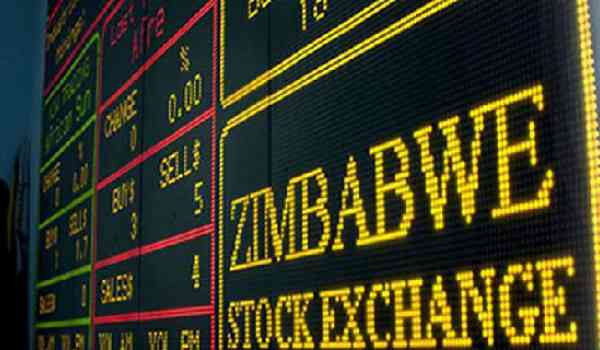
IN the first week of September, the Zimbabwe Stock Exchange (ZSE) experienced a downturn due to profit-taking induced sell-offs, following a relatively stable August.
By the end of September, the mainstream index had achieved a notable growth of 21,4% in nominal terms, building on the 1,2% increase seen in August.
However, this progress was abruptly challenged when the Reserve Bank of Zimbabwe (RBZ) implemented a significant policy shift at the end of the month. The RBZ devalued the official exchange rate in a bid to narrow the exchange premium gap and curb arbitrage activities, leading to a sharp 43% depreciation of the Zimbabwean dollar (ZWG) in just one day, and a 44% decline over the month.
This sudden devaluation had an immediate and dramatic impact on the Zimbabwe Stock Exchange (ZSE). The ZSE All Share Index plummeted by 32,4% in US dollar terms in September compared to August, highlighting the vulnerability of the market to erratic policy changes, particularly in a local currency-driven environment. The decline underscored how unpredictable policies can erode investor confidence and destabilise the market.
Looking ahead, the abrupt devaluation is expected to dampen trading activity on the ZSE in the first half of October, as investors adopt a cautious approach, closely monitoring potential policy shifts and their effects.
However, this scenario also presents an opportunity. The increased supply of ZWG and the significantly lower share prices in real terms are likely to attract value-seeking investors looking to hedge against inflation. This could trigger a substantial bull run on the ZSE as investors buy low and position themselves for future gains.
As we approach the end of the year, the market is anticipated to maintain a bullish trend. Investors are likely to continue capitalising on lower share prices to preserve value, driving further growth.
However, sustained market performance will depend on the stability and predictability of economic policies. Restoring investor confidence through consistent policy measures will be key to supporting long-term growth on the ZSE.
- Stop clinging to decaying state firms
- Zim bourse in limbo
- Piggy's Trading Investing Tips: De-risking mining projects
- Chance to buy 'undervalued' counters: FBC
Keep Reading
Meanwhile, the US dollar-denominated Victoria Falls Stock Exchange (VFEX) experienced mixed investor sentiment in September. Liquidity constraints exerted downward pressure on prices, while the demand for stable portfolios and policies provided a counterbalance.
Despite these challenges, the VFEX All Share Index posted a modest 1,8% gain in September, contributing to a cumulative growth of 3% since the beginning of the year.
This performance underscores the resilience of the VFEX, buoyed by the stability of trading in hard currency. The use of the US dollar has been a critical factor in maintaining investor confidence and market stability in an otherwise volatile environment.
Looking forward to the fourth quarter, an increase in foreign currency inflows is expected to sustain the positive momentum on the VFEX. This influx of capital is likely to bolster market activity and support further growth.
Additionally, anticipated new listings in the real estate sector are set to enhance liquidity on the VFEX. With institutional investors increasingly focusing on immovable properties, activity on the bourse is expected to rise.
These new listings will open up fresh investment opportunities, attracting more capital and further supporting market expansion.
Overall, the VFEX is expected to continue its positive trajectory towards the end of the year, bolstered by stable foreign currency inflows and new sector listings. Meanwhile, the ZSE is projected to sustain growth in nominal terms, but may decline in US dollar terms due to the strengthening demand for foreign currency heading into December.
The RBZ’s efforts to curtail liquidity in the short term to ensure exchange rate stability during the festive season will likely result in devalued portfolios in US dollar terms on the ZSE. However, the VFEX is expected to maintain its position with only marginal shifts.
Duma is a financial analyst and accountant at Equity Axis, a leading media and financial research firm in Zimbabwe. — twdumah@gmail.com or tinashed@equityaxis.com, X: TWDuma_










